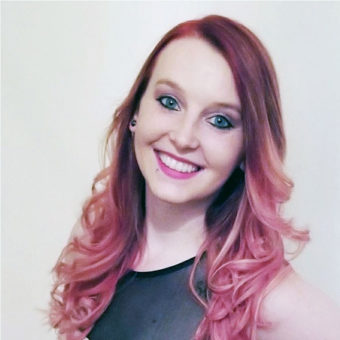Law School
New England School of Law, Boston
Agency
Massachusetts Commission Against Discrimination
Biography
Caitlin Whitman is trying to find a place in the law where she can put her radical outlook and voice to good use.
After spending her summer as a Rappaport Fellow in the General Counsel’s office at the Massachusetts Commission Against Discrimination, the second-year student at New England Law | Boston called the Rappaport experience “a valuable one, and one that I would recommend to anyone interested in administrative or public interest work.”
She also found herself asking an honest philosophical question about state agencies in general: Are there places for those agencies to make a statement for social change, such as in the case of Black Lives Matter, or should the broader work of the agency simply speak for itself?
She’s got her own opinion, but she also appreciates there’s an argument to be made on the other side. Plus, she said, “I’m okay with ruffled feathers, but I would rather not light the bridge on fire.”
To be sure, Caitlin has an intimate relationship with conflict, and occasional feather-ruffling. She’s seen poverty, crime and effects of the opioid crisis up close in her hometown of Brockton. She grew up with a single mom who struggled with mental health issues and addiction. And after receiving a counseling psychology degree from Lesley University, she spent four years fighting the good fight at Franciscan Children’s Community Based Acute Treatment Unit, a short-term residential program for kids with behavioral and emotional difficulties.
Now, it’s New England Law, to which she received a full scholarship. “I knew they had a more conservative reputation,” the 30-year-old said, “so I was probably going to get into some good trouble.”
She seems to be on her way. She doesn’t believe the school has been proactive enough in response to the recent events around police, race relations, and the Black Lives Matter movement, and she’s not tiptoeing around it.
As the president of the Women’s Law Caucus, Caitlin has been standing in strong support of a campaign written by the Black Law Students Association, which calls for the school to take seven specific action steps in the direction of racial equity. “I’m fine with you writing the stuff about my school,” she said. “We just want them to do something.
“The failure of the school to acknowledge the pain and support the well-being of their Black students is frankly unacceptable. I truly do not understand the hesitancy to make concrete changes to the curriculum so that future attorneys can better understand the impact racism has on every aspect of our legal systems.”
As to the future, there should be no surprise that she envisions a career in movement lawyering, possibly criminal defense work (“because the macro needs to be informed by the direct work”), and maybe an eventual run for public office – all things that a maker of change might do.
“Sometimes it’s to my own detriment,” she said, “but I tend to find myself in the position of speaking out.”
